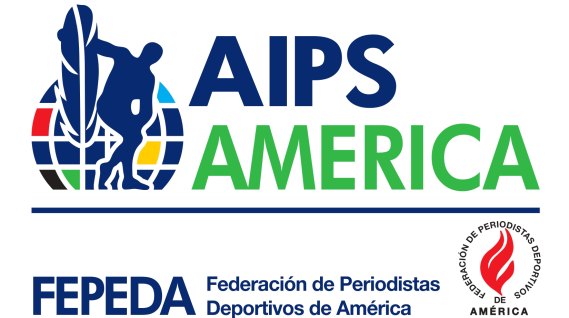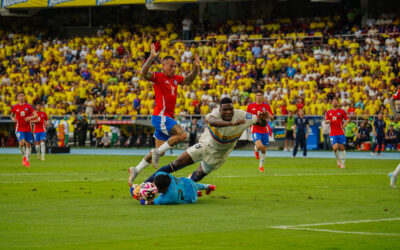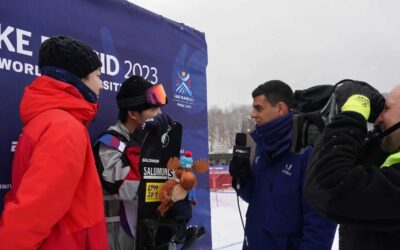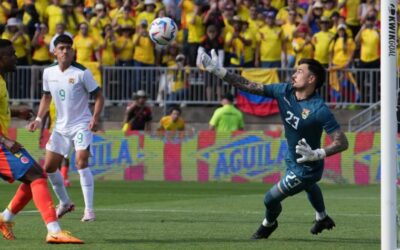Gabriel Cazenave
Panam Sport resolved a few days ago in Miami, by 28 votes against 24, to award the organization of the 2027 Pan American Games to Lima and not to Asuncion. A tight decision in which the double vote of Peru, as a country already hosting this event, just five years ago, was undoubtedly decisive.
Lima had the strength of the tangible, because of what was done in 2019, which was highly satisfactory. Paraguay was an ambitious challenge, with promises to be fulfilled in terms of infrastructure, such as the Pan American Village and some ingenious solutions such as appealing to an alliance with El Salvador, a Central American country with beaches on the Pacific, more than 5,000 kilometers away from Paraguayan territory – landlocked – to host the surfing competitions.
In fact, this solution was not a Paraguayan invention, since the Paris 2024 Olympic Games will be held in Tahiti, the largest of the French Polynesian islands, also in the Pacific.
During the South American Games 2022, held in Asuncion, the Paraguayan organization stood out for the quality of its venues, the fervor of the fans and the friendliness of its mascot Tirika. The euphoria of this success raised self-esteem and more ambitious goals were set, such as the 2025 Junior Pan American Games, which have already been awarded to Paraguay, and the failed attempt of the 2027 Adult Games, which in good faith was won by Lima.
Paraguay even appealed to geopolitical factors such as stability to support its candidacy, arguing that only in 2028 there will be presidential elections in the country, while Peru must hold them in 2026, a year before the Games.
Paraguay’s adventure, however, should also be analyzed from the point of view of the reality of a small country, with huge deficiencies in education, health and infrastructure, largely due to the corruption of successive governments, which have perfected the repugnant habit of appropriating public goods, installed in the top echelons of government mainly during the long political-military dictatorship of the tyrant Alfredo Stroessner (1954-1989).
Therefore, allocating 300 million dollars to meet the requirements of an event of this magnitude (5,000 athletes from 40 countries), while there are public schools where students study under trees because the roofs of the classrooms have fallen down or popular sanatoriums where there is a lack of beds, medicines, diagnostic equipment and medical specialists, does not make any sense whatsoever.
In addition, experience shows that infrastructure works end up costing several times more than the initial value, with infallible addenda, which generate an atmosphere of legitimate suspicion as to the true destination of state funds.
Corruption is the first enemy to be defeated in Paraguay. If at least the initial steps towards that goal are ever taken, the possibilities for encouraging ambitious objectives will then be much more feasible.
Gabriel Cazenave
Panam Sport resolved a few days ago in Miami, by 28 votes against 24, to award the organization of the 2027 Pan American Games to Lima and not to Asuncion. A tight decision in which the double vote of Peru, as a country already hosting this event, just five years ago, was undoubtedly decisive.
Lima had the strength of the tangible, because of what was done in 2019, which was highly satisfactory. Paraguay was an ambitious challenge, with promises to be fulfilled in terms of infrastructure, such as the Pan American Village and some ingenious solutions such as appealing to an alliance with El Salvador, a Central American country with beaches on the Pacific, more than 5,000 kilometers away from Paraguayan territory – landlocked – to host the surfing competitions.
In fact, this solution was not a Paraguayan invention, since the Paris 2024 Olympic Games will be held in Tahiti, the largest of the French Polynesian islands, also in the Pacific.
During the South American Games 2022, held in Asuncion, the Paraguayan organization stood out for the quality of its venues, the fervor of the fans and the friendliness of its mascot Tirika. The euphoria of this success raised self-esteem and more ambitious goals were set, such as the 2025 Junior Pan American Games, which have already been awarded to Paraguay, and the failed attempt of the 2027 Adult Games, which in good faith was won by Lima.
Paraguay even appealed to geopolitical factors such as stability to support its candidacy, arguing that only in 2028 there will be presidential elections in the country, while Peru must hold them in 2026, a year before the Games.
Paraguay’s adventure, however, should also be analyzed from the point of view of the reality of a small country, with huge deficiencies in education, health and infrastructure, largely due to the corruption of successive governments, which have perfected the repugnant habit of appropriating public goods, installed in the top echelons of government mainly during the long political-military dictatorship of the tyrant Alfredo Stroessner (1954-1989).
Therefore, allocating 300 million dollars to meet the requirements of an event of this magnitude (5,000 athletes from 40 countries), while there are public schools where students study under trees because the roofs of the classrooms have fallen down or popular sanatoriums where there is a lack of beds, medicines, diagnostic equipment and medical specialists, does not make any sense whatsoever.
In addition, experience shows that infrastructure works end up costing several times more than the initial value, with infallible addenda, which generate an atmosphere of legitimate suspicion as to the true destination of state funds.
Corruption is the first enemy to be defeated in Paraguay. If at least the initial steps towards that goal are ever taken, the possibilities for encouraging ambitious objectives will then be much more feasible.




